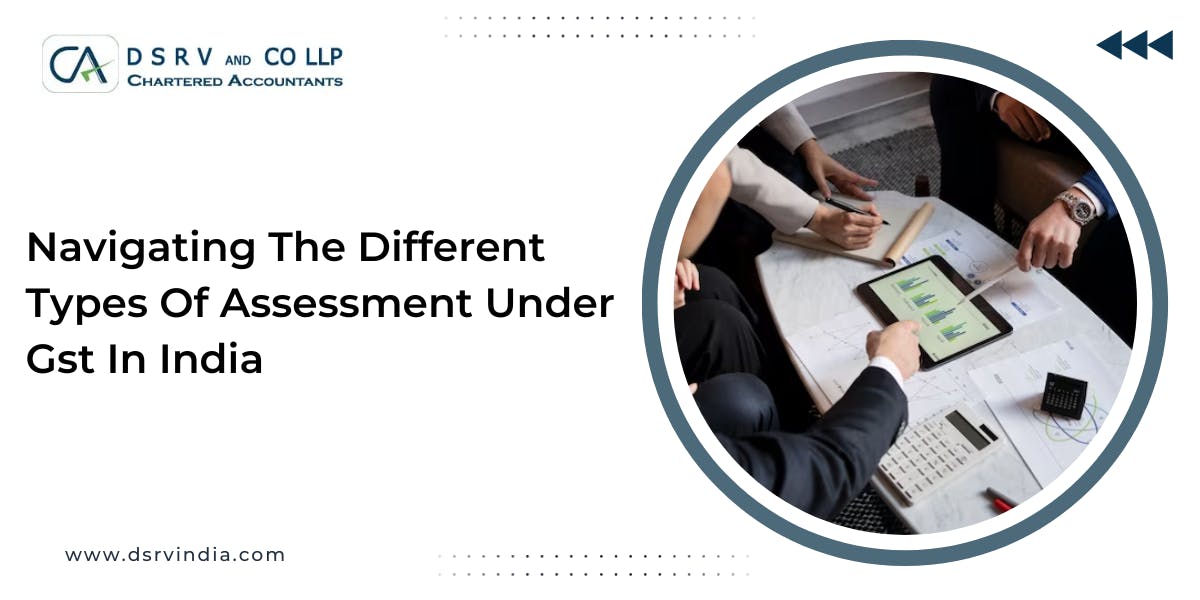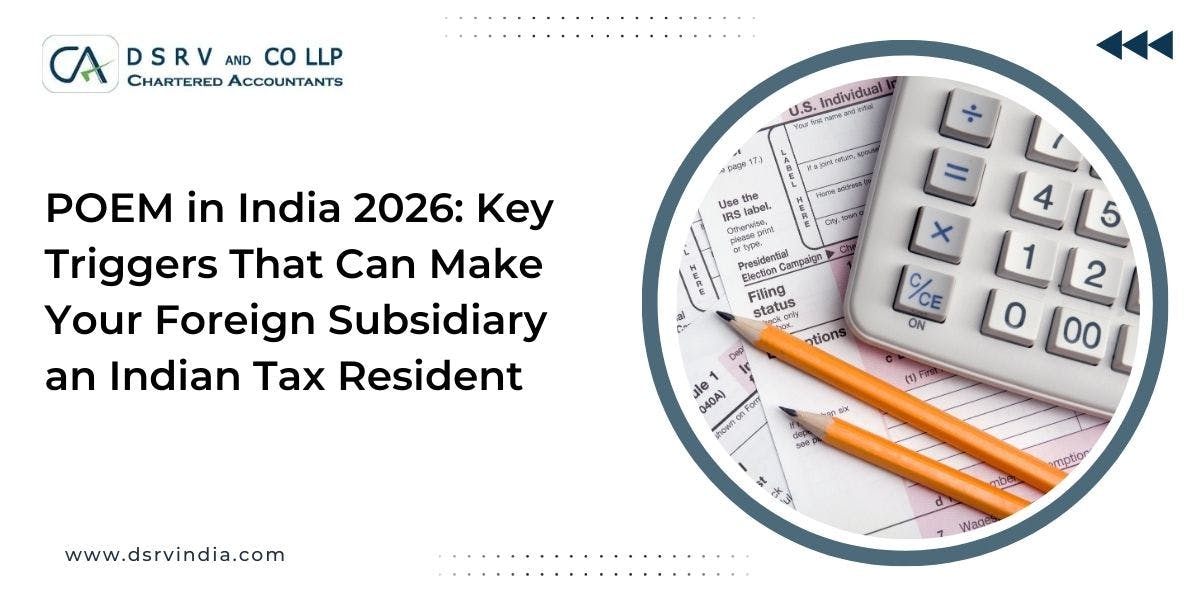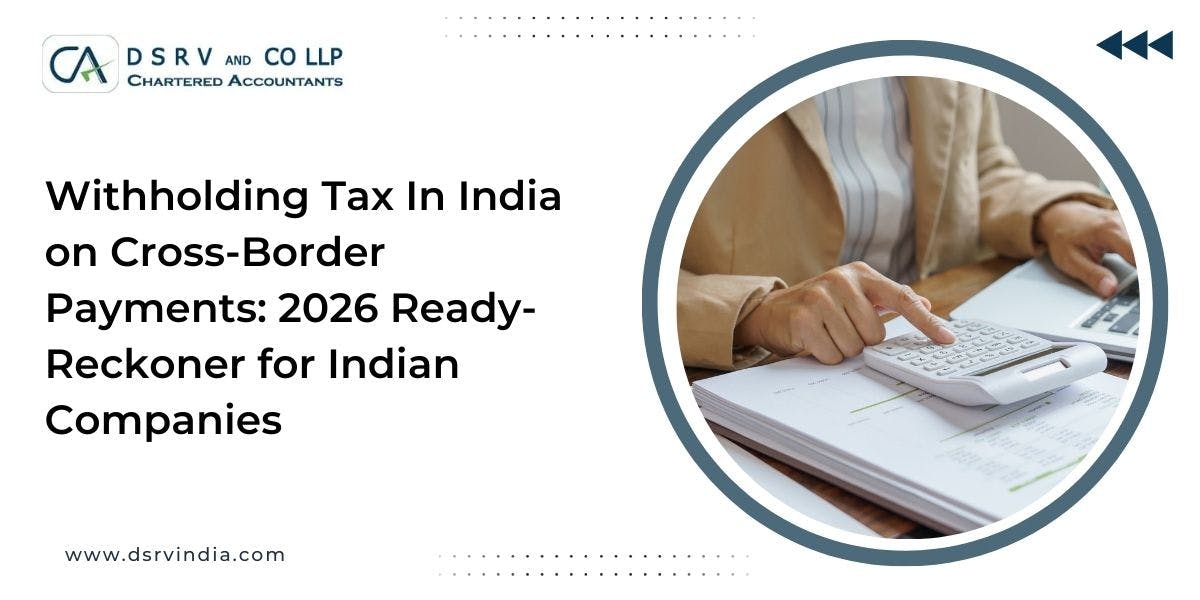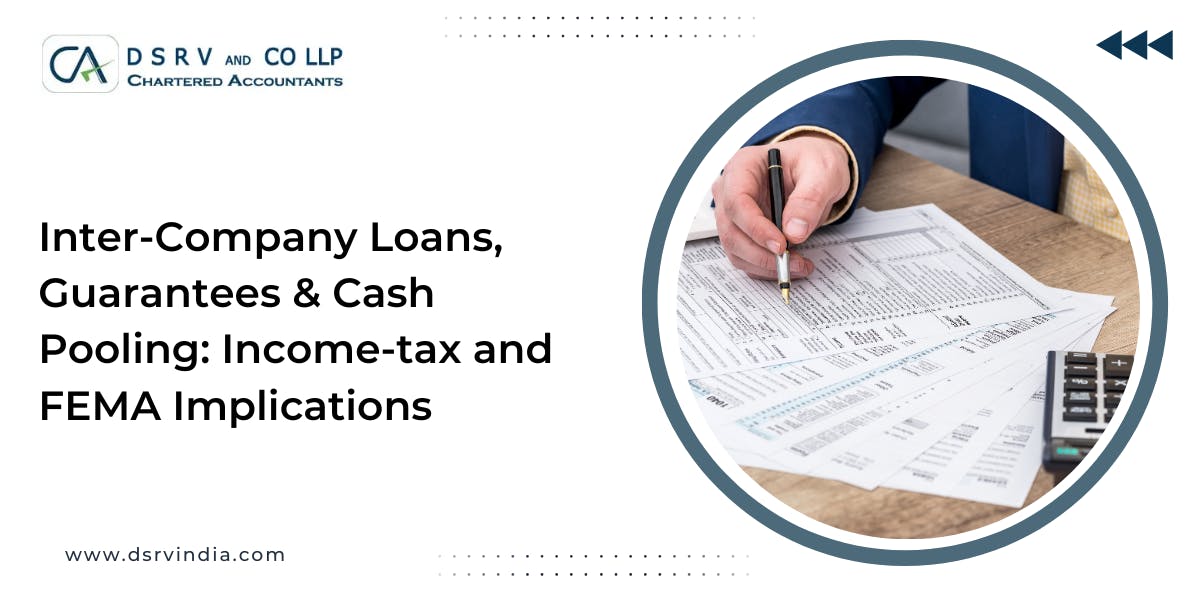Are you a business owner navigating the twists and turns of GST in India? Do you want to know how different assessments, from self-assessment to best judgment, affect your financial plan and compliance?
In this comprehensive blog, we delve into the complexities of GST assessments, explaining the nuances of each type and their implications on your business operations. Whether you're filing monthly GST returns or facing a government-initiated evaluation, our tax consultant in Gurgaon has explained everything.
So, continue reading as we break down the complexities, providing practical insights to empower your business decisions.
Learn The Crucial Role of Assessments
According to the GST law, assessment refers to figuring out your tax liability. This process lets the tax authorities carefully check the tax returns you have submitted to make sure your tax calculations are accurate. The main goal is to make sure that you've calculated and paid your taxes correctly.
If you need any type of tax-related assistance, you can contact us anytime. Our tax experts can help you resolve complex tax issues and even help with cross border tax services.
Must Read : The Ultimate Survival Guide To Income Tax Assessment – Are You Prepared?
What Are The Various Types Of Assessment Under GST In India?
Following are the various types of assessment under GST –
Self-Assessment
Provisional Assessment
Scrutiny Assessment
Best Judgment Assessment
Assessment Of Non-Filers Of Returns
Unregistered Person Assessment
Summary Assessment
Read This : A Beginner's Guide to Cross-Border Mergers and Acquisitions in India
Now let's discuss different types of assessment in detail –
Self-Assessment
Self-assessment is the process of determining how much tax you must pay on your own. If you are a registered taxpayer, it is your job to examine your finances, calculate your tax liability, and report it to the government.
Section 59 of the GST Act has a special rule for self-assessment. After you've completed your self-assessment, you must pay the taxes based on what you calculated. This helps the government in keeping track of everyone's taxes and ensuring that everything is fair.
Provisional Assessment
Provisional assessment is a tax strategy used in specified cases under GST (Goods and Services Tax) rules. Assume you're a business owner who is unsure about the worth of what you're selling or the right tax rate to apply. In such cases, you can ask for a provisional assessment.
But you can only ask for provisional assessment in these two situations. Once you request it, an official decides on a temporary tax rate or value for your transactions. This decision is normally made within three months of receiving your request. Following that, your final assessment decision must be made within six months.
Know The Process : STEPS TO FILE ITAT APPEAL ONLINE IN INDIA
Scrutiny Assessment
According to Section 61 of the GST (Goods and Services Tax), scrutiny assessment is an examination performed by tax authorities to ensure that the information in registered taxpayers' tax filings is valid.
The way it works is that only registered people can go through this scrutiny procedure, and tax authorities cannot use it for those who aren't registered.
They can only send a notice under Section 61 if a registered individual has already filed their tax returns. Except in unusual circumstances, the tax agency rarely requests more information.
They make this determination based on the information they already have from the taxpayer's returns and forms. After this check, they might send a notice (called ASMT 10) to tell the taxpayer the final amount of tax they need to pay.
Best Judgment Assessment
When a taxpayer fails to file a return despite receiving a notification under Section 46 of the tax rules, the best judgment assessment takes effect. This occurs when someone fails to share their financial information as requested.
In such cases, the responsible agency has the authority to estimate the amount of tax owed. They do this by reviewing all of the information they have or may obtain.
This assessment order, which determines tax liabilities, must be issued within five years of the date specified in Section 44, which is the deadline for submitting the annual return for that financial year.
Assessment Of Non-Filers Of Returns
Non-filers of returns are assessed when someone who should be registered for taxes does not register or has their registration revoked, even though they were required to pay taxes. In these cases, the competent officer has the authority to assess the tax liability of these individuals using their best judgment for the relevant tax periods.
The order for this assessment is issued within five years from the date specified in Section 44, which is the deadline for submitting the annual return for the financial year related to the unpaid tax.
However, before making any assessment judgment, the individual involved must be allowed to express their side of the story, ensuring a fair review of their tax responsibilities.
Unregistered Person Assessment
When a taxpayer fails to get GST registration or has their registration terminated under section 29(2), although being required to register and pay taxes, the GST officer has the authority under section 63 to assess their tax liability to the best of their abilities.
This assessment is carried out for the applicable tax term. The officer may issue an assessment order within five years of the date stipulated in section 44 for filing an annual return for the financial year in which the taxes are still outstanding.
Summary Assessment
Summary assessment in GST is a special procedure designed for exceptional cases where tax authorities suspect that a taxpayer is trying to avoid paying taxes. In such cases, the competent authority must have evidence that taxes are due but have not been paid.
In addition, prior approval from both the Additional and Joint Commissions is required before proceeding with summary assessment. When any delay in the assessment is regarded to be harmful to the revenue's interests, this procedure is used.
If the taxpayer cannot be identified, the person in charge of the relevant items is held liable. It is often employed when a taxpayer is in default or cannot be traced. Unlike other types of assessment under GST, there is no time limit for passing orders in summary assessments, and the individual involved may not be explicitly obliged to be heard.
Ready to File? First, Spot And Fix These Common Mistakes!
- Make sure you appropriately classify your goods and services to avoid errors in the amount of tax you must pay.
- Calculate the tax you owe accurately based on the rates for your goods or services. Wrong calculations can lead to fines, so it's important to be precise.
- To avoid penalties, always file your GST returns on time. If you miss the deadline, you may have to pay more, so make sure to file by the deadline.
- Don't forget to inform the tax authorities about any tax credits you may be eligible for the items you've purchased. If you leave it out, you risk receiving the incorrect tax amount and penalties.
- Report your business turnover accurately to prevent mistakes in your tax assessment. Double-check the numbers you provide.
Conclusion
As we conclude our exploration of various types of assessment under GST, keep in mind that understanding these processes is important for correct and trouble-free tax dealings.
If you have any GST-related queries or require expert support, please do not hesitate to contact DSRV India. Our team is ready to help you manage the complexity of GST assessments and keep your tax affairs in order.






